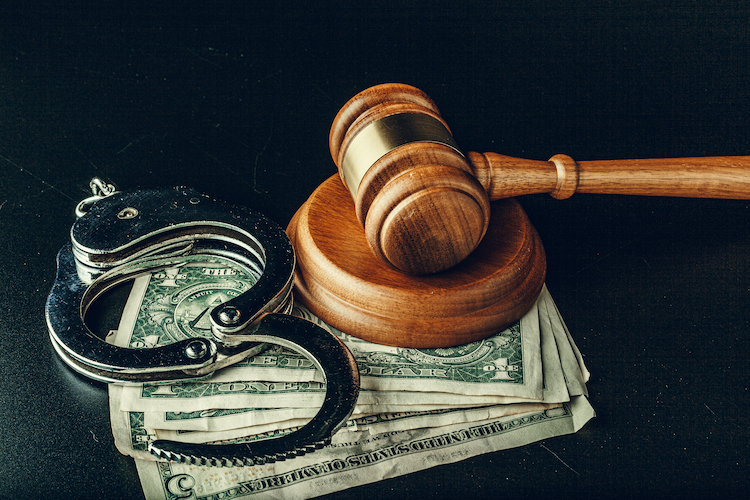Supreme Court Considers Scope of Federal Bribery Law

Last week, the U.S. Supreme Court heard oral arguments in four cases. One of the most closely watched is Percoco v. United States, which involves the scope of a key federal bribery law. The question before the justices is whether private citizens can owe a fiduciary duty to the public and therefore be guilty of honest-services fraud.
In convicting Joseph Percoco, who served as campaign manager forNew York Gov. Andrew Cuomo’s reelection campaign, the Second Circuit Court of Appeals held that if a private person exercises enough de facto influence over government decision-making or that state officials sufficiently rely on him, the person can be convicted of bribery even if he had no official title, no official power, and no official duties.
Below is a brief summary of the other cases before the Court:
Ciminelli v. United States: The government contracting case involves the scope of the federal wire fraud statute, particularly a theory adopted by the Second Circuit known as the “right-to-control theory” of wire fraud, which allows for conviction on “a showing that the defendant, through the withholding or inaccurate reporting of information that could impact on economic decisions, deprived some person or entity of potentially valuable economic information.”The justices have agreed to specifically consider the following question: “Whether the U.S. Court of Appeals for the 2nd Circuit’s “right to control” theory of fraud — which treats the deprivation of complete and accurate information bearing on a person’s economic decision as a species of property fraud — states a valid basis for liability under the federal wire fraud statute.”
United States v. Texas: The immigration suit brought by the States of Texas and Louisiana challenges a Biden Administration policy prioritizing the apprehension and deportation of three groups of noncitizens: suspected terrorists, individuals who have committed crimes, and those recently detained at the border. The justices have agreed to clarify the states’ ability to challenge federal immigration policy, among other issues. The Court has specifically agreed to resolve three questions: (1) Whether state plaintiffs have Article III standing to challenge the Department of Homeland Security’s Guidelines for the Enforcement of Civil Immigration Law; (2) whether the Guidelines are contrary to 8 U.S.C. § 1226(c) or 8 U.S.C. § 1231(a), or otherwise violate the Administrative Procedure Act; and (3) whether 8 U.S.C. § 1252(f)(1) prevents the entry of an order to “hold unlawful and set aside” the guidelines under 5 U.S.C. § 706(2).
Wilkins v. United States: The case involves two Montana landowners who filed a quiet title action seeking to resolve a dispute over the scope of an easement held by the United States that runs across their land and the federal government’s duties under the easement. The District Court held that the Quiet Title Act’s statute of limitations is jurisdictional and because the landowners failed to prove that their claims arose within twelve years of the lawsuit being filed, it dismissed the case. In conflict with the Seventh Circuit Court of Appeals, the Ninth Circuit affirmed, holding the Quiet Title Act’s statute of limitations is jurisdictional. The question before the Court is: “Whether the Quiet Title Act’s Statute of Limitations is a jurisdictional requirement or a claim–processing rule?”
The Court is expected to issue decisions in all of the cases prior to the end of the term in June 2023. Please check back for updates.
Previous Articles
SCOTUS Holds No Minimum Contacts Required for Personal Jurisdiction Over Foreign States Under FSIA
by DONALD SCARINCI on October 2, 2025
In CC/Devas (Mauritius) Limited v. Antrix Corp. Ltd., 605 U.S. ____ (2025), the U.S. Supreme Court ...
SCOTUS Sides With Trump Administration Over NIH Grants Tied to DEI Initiatives
by DONALD SCARINCI on September 26, 2025
The U.S. Supreme Court continues to issue emergency orders involving legal challenges to policy cha...
SCOTUS Rejects Challenge to South Carolina’s Exclusion of Planned Parenthood from State Medicaid Program
by DONALD SCARINCI on September 16, 2025
In Medina v. Planned Parenthood South Atlantic, 606 U.S. ____ (2025), the U.S. Supreme Court held t...
The Amendments
-
Amendment1
- Establishment ClauseFree Exercise Clause
- Freedom of Speech
- Freedoms of Press
- Freedom of Assembly, and Petitition
-
Amendment2
- The Right to Bear Arms
-
Amendment4
- Unreasonable Searches and Seizures
-
Amendment5
- Due Process
- Eminent Domain
- Rights of Criminal Defendants
Preamble to the Bill of Rights
Congress of the United States begun and held at the City of New-York, on Wednesday the fourth of March, one thousand seven hundred and eighty nine.
THE Conventions of a number of the States, having at the time of their adopting the Constitution, expressed a desire, in order to prevent misconstruction or abuse of its powers, that further declaratory and restrictive clauses should be added: And as extending the ground of public confidence in the Government, will best ensure the beneficent ends of its institution.





